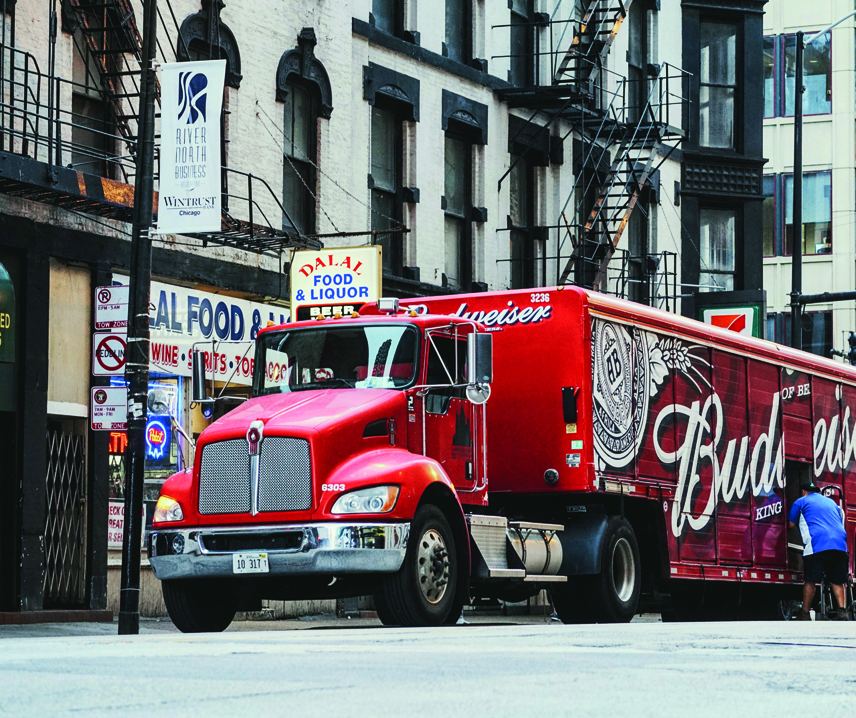
With more food deliveries requiring timely supply, many courier van drivers are installing mobile chilling units in their vehicles to make sure they stay compliant and keep their goods safe. We look at the number of options to keep your delivery consignment as cool as cucumber even when deadlines are hotting up.
The online grocery market share in the UK has nearly doubled over the last year to 14 percent, according to British market research company Kantar. And after a year in which the global pandemic forced many people to buy online for the first time, delivery group Ocado reported a 35 percent increase in sales over the past 12 months.
On time delivery and grocery freshness have become the buzzwords of retail chains, especially in the food sector, so it’s no surprise that freezer and refrigerated vans have now become commonplace on our roads.
Before you invest in refrigeration, you need to consider the implications it may have for your courier insurance, especially when it comes to goods in transit insurance, essential when you are handling perishable and expensive groceries to multiple sites.
Choosing the Right Van
When choosing the right van for your business, you need to consider the long-term use and whether you just need to transport chilled products or may also need to keep goods frozen. There are generally three types of vans available:
- Chiller vans are used for items that need refrigerating but not freezing. Refrigerated vans usually include an integrated and insulated storage compartment to protect goods from the ambient outside temperature. A dependable refrigeration system lowers and maintains temperature.
- Semi-freezer vans also feature a layer of insulation and a refrigeration system with either hot gas defrost, or reverse cycle defrost. The refrigerated cargo space can carry food as low as -10 to -15°C.
- Full freezer conversion vans can keep products at -20°C or below and ensure that frozen foods and perishable goods are kept in perfect condition.
Practically every van and car manufacturer from Ford to Mercedes stock refrigerated vans but you will want to consider the size and load capacity and the temperature control. You need to find a vehicle that not only suits your business needs right now, but in the future as well.
Rules and Transportation Risks
The rules governing the transportation of things like meat and poultry are largely found in The International Carriage of Perishable Foodstuffs Regulations 1985. Businesses that are also transporting foodstuffs abroad in road vehicles like refrigerated vans must, in addition, comply with ATP Rules such as:
- which foods and foodstuffs are covered by the rules
- the temperatures different foods must be transported at
- how vehicles, trailers and equipment can be approved
- what documents you need to prove your vehicles, trailers and equipment meet the standards
- what signs need to be on vehicles and trailers
Follow this link for more information: https://www.gov.uk/guidance/atp-rules-on-carrying-perishable-foodstuffs-in-road-vehicles
If you decide to invest in a second-hand refrigerated or freezer van, you will need to do a lot of research and consult a specialist who can ensure your van operates at maximum efficiency.
While your van may appear to function adequately, it can consume excessive power, leading to overheating or other mechanical problems. Over the last 20 years, refrigeration technology has improved drastically, so newer models operate at a fraction of the energy cost than older models do and may be worth the additional investment.
Goods in Transit Insurance
As well as protecting you, a courier insurance policy should also protect you against the risks you pose to other road users together with their vehicles and property.
Transporting perishable goods also carries its own problems. As well as loss and theft, there are risks associated with mechanical failure or breakdown, and even delays of goods can lead to fresh foods becoming damaged or spoilt. Making sure your courier insurance contains a sufficient level of goods in transit insurance will cover you for claims due to spoilage or waste.